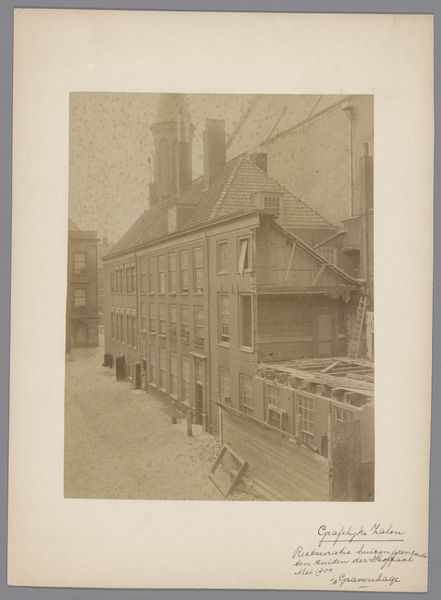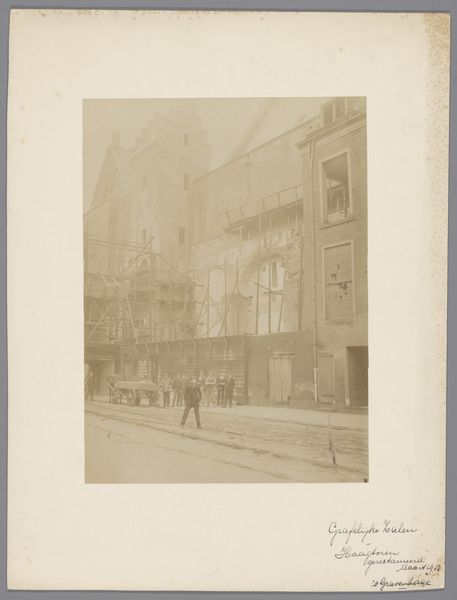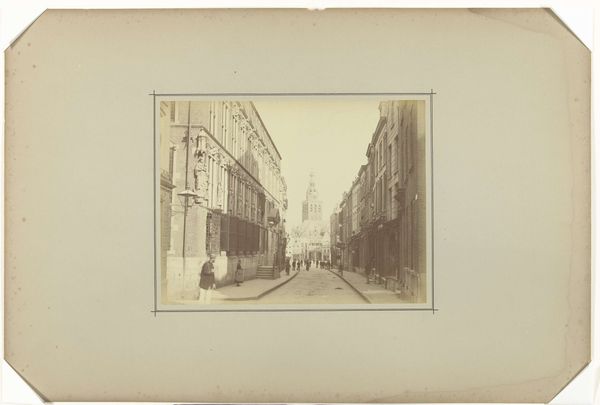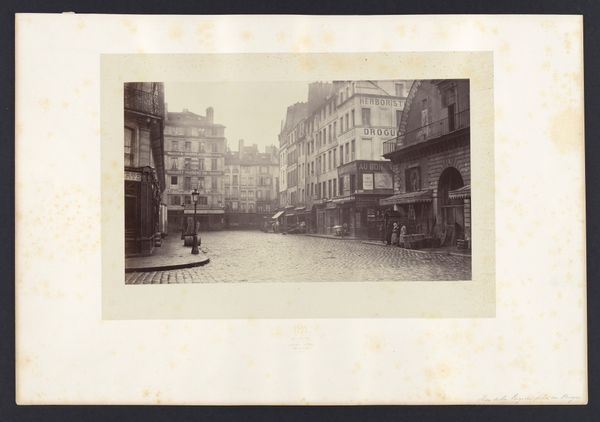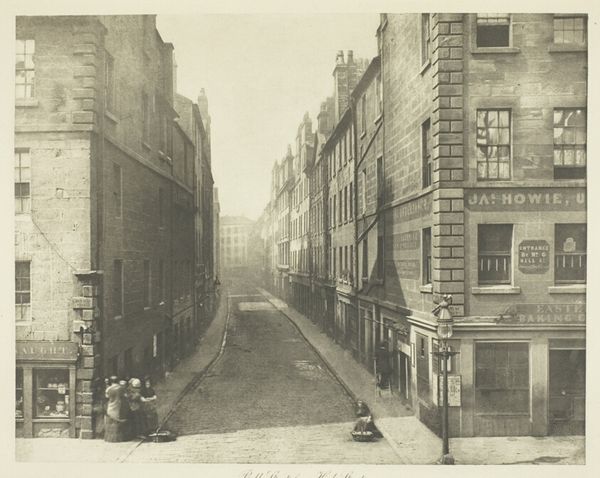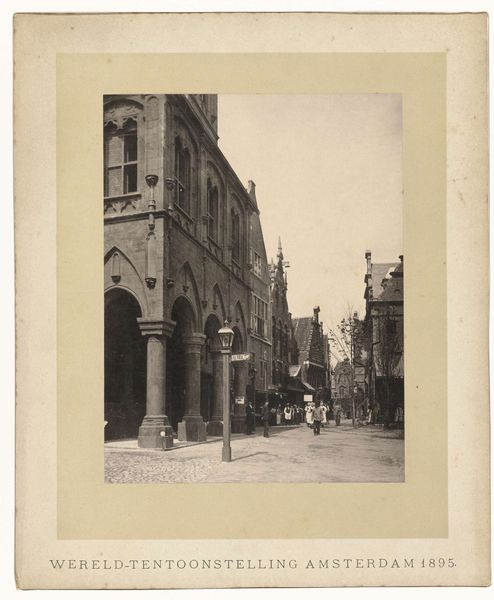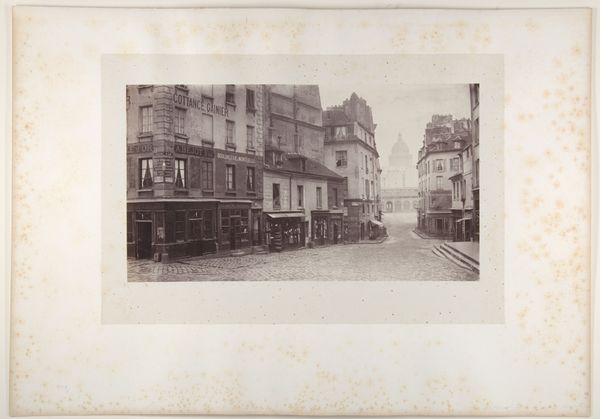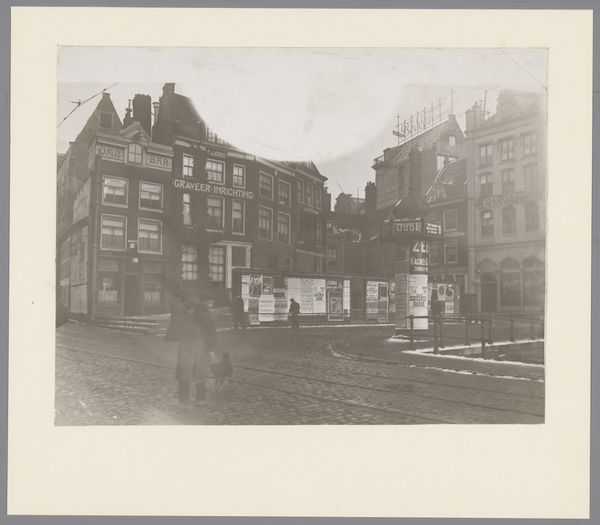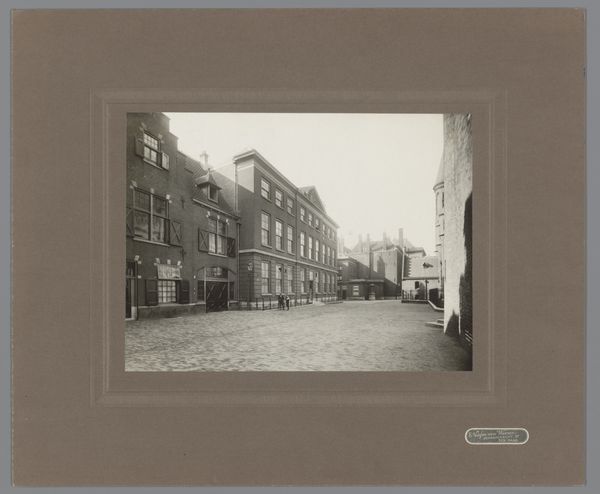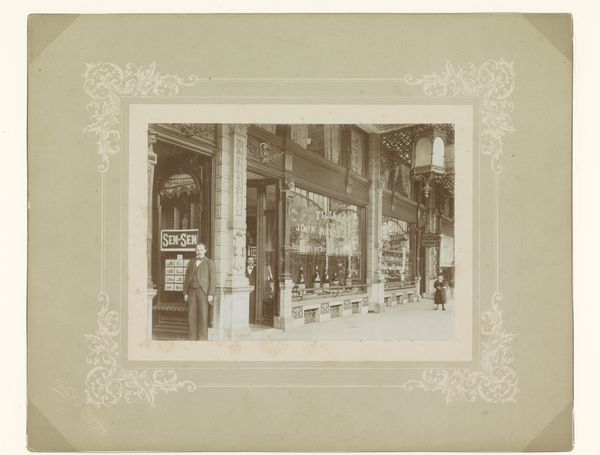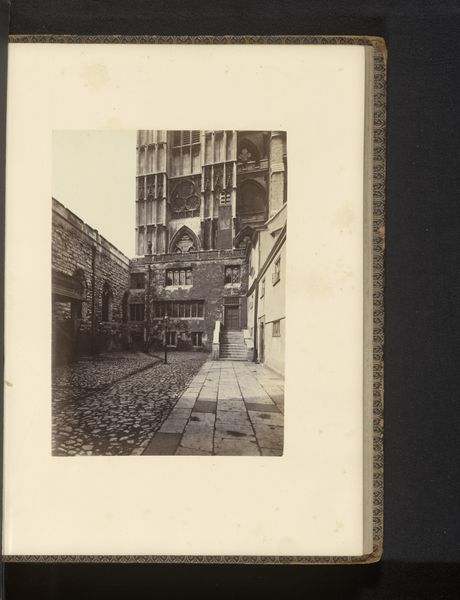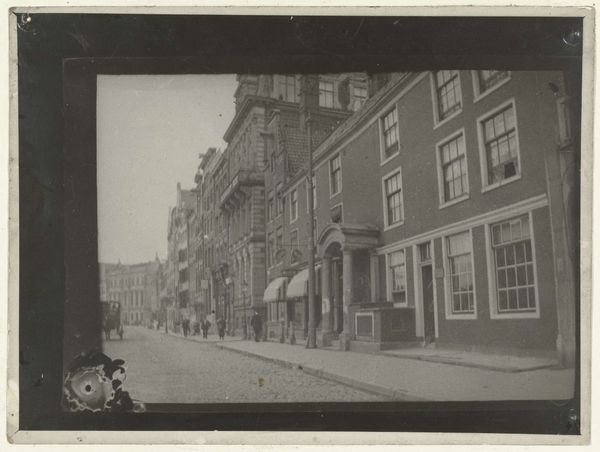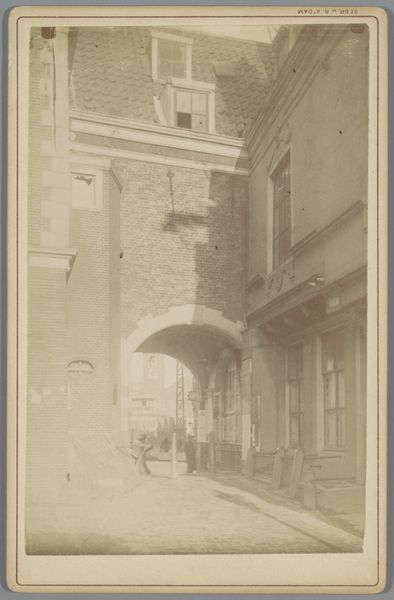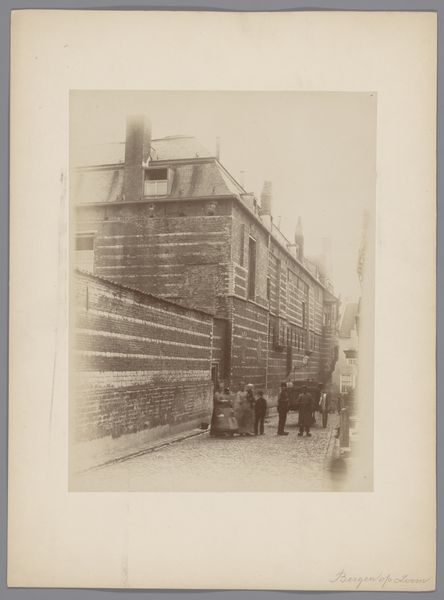
Rue du Contrat-Social, de la rue de la Tonnellerie 1864 - 1865
0:00
0:00
photography, gelatin-silver-print
#
photography
#
gelatin-silver-print
#
cityscape
#
street
#
realism
#
building
Dimensions: Image: 22.5 x 37.1 cm (8 7/8 x 14 5/8 in.) Mount: 41.3 x 60.3 cm (16 1/4 x 23 3/4 in.)
Copyright: Public Domain
Curator: What a stark yet captivating vista. Editor: Indeed. Let's explore Charles Marville's gelatin-silver print, "Rue du Contrat-Social, de la rue de la Tonnellerie," dating from 1864 to 1865. This image freezes a moment in the Parisian cityscape. Curator: The cobblestones are quite prominent, as are the building facades – a rather relentless emphasis on the constructed environment and how materials dictate experience. How interesting that even street vending becomes architectural, subsumed by heavy posts and protective umbrellas! Editor: The composition directs the gaze centrally, offering a sharp linear perspective. Notice how the contrast creates visual drama: the buildings on either side, their varying textures. The photograph encapsulates realism through precise detail. Curator: Considering Haussmann’s project of urban renewal underway at the time, Marville’s photograph takes on a new meaning. This is not just about aesthetics but the changing social landscape, labor conditions, and political choices manifest in urban planning and how they affect material life. The cobblestones were often made and maintained by marginalized communities. What becomes of their roles once such spaces were altered? Editor: I see the semiotics of that contrast as critical here – the narrowness emphasizes both intimacy and enclosure. The light filtering through evokes a specific atmosphere. The use of black and white draws focus onto form and texture. Curator: Precisely! The form embodies how space is industrialized; photography at this time provided a tool to codify urbanity and progress in a concrete manner. By examining who commissioned this work or the function it originally served allows us a greater sense of the photograph’s social contribution. Editor: Looking at the overall structure, it is evident Marville considered lighting angles and perspectives; these components invite a certain type of reading into its cultural essence and aesthetics. Curator: Thinking of the street vendors here really emphasizes how their existence contributes labor to these streetscapes. Editor: It is through your considerations, thinking about what lies beneath these structures—the means, people, and conditions of this street. It prompts me to see its architectural features more intimately.
Comments
No comments
Be the first to comment and join the conversation on the ultimate creative platform.
